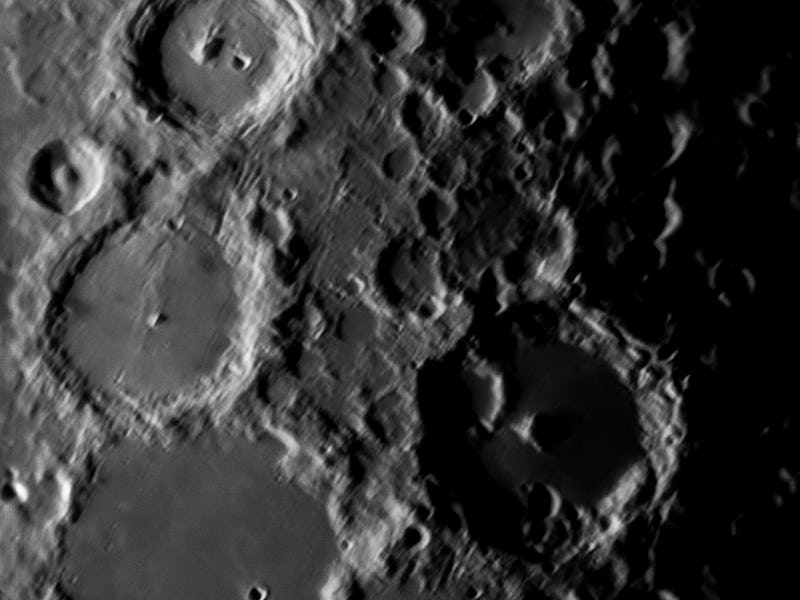Why NASA may put a telescope on the moon
Plus: Hyundai reveals its secret weapon against Tesla

As I look forward to seeing Shang Chi — especially after reading this glowing review of the movie — let’s get you caught up on the latest science and technology news from the editorial staff at Inverse.
I’m Nick Lucchesi, and this is Inverse Daily. Tell a friend to subscribe using this link. Keep reading for the science song of the day (it’s a ripper) and a few notable birthdays.
This is an adapted version of the Inverse Daily newsletter for Tuesday, August 24, 2021. Subscribe for free and earn rewards for reading every day in your inbox. ✉️
The future of cosmology is 239,000 miles away — Passant Rabie spoke with astronomers who hope to get close-up images of the universe's mysteries from a vantage point of the moon:
The Moon isn’t merely a symbol of our humanity’s future in space. The Moon is the literal destination.
That’s the vision of Saptarshi Bandyopadhyay, a Robotics Technologist at NASA’s Jet Propulsion Lab, easily NASA’s most innovative (and coolest) piece of real estate.
His vision for the Moon, specifically, is a new vantage point for radio astronomy, the field of research that studies celestial objects that put out radio waves, including those that are otherwise invisible in space. The telescope would be placed on the surface of the Moon, some 239,000 miles away.
Right now, a telescope on the Moon is a dream that remains out of reach, even if it feels closer than ever.
The more you know:
- Full Moon 2022 calendar: Dates, times, schedule, and names for the brightest nights all year
- Look: 8 stunning images show Starship is ready for the Moon
- A new scientific theory debunks what we knew about the Moon
An unexpected connection between gut and heart health — Elana Spivack reports on a study that looks at how a high-fat diet in mice prompted the production of TMAO in the gut, increasing risk of heart disease:
One of the buzziest (and most controversial) health trends is the ketogenic diet.
Embraced by many, keto revolves around a high-fat, low-carb, and adequate-protein way of eating. However, many scientists are skeptical of the diet, arguing its downsides may outweigh its benefits.
A study published last week in the journal Science reinforces the main argument against keto: a high-fat diet can lead to long-term health problems.
The more you know:
- Keto diet: 5 essential reasons why you need to avoid it
- How this low-carb diet might be linked to immunity
- Keto may help you stay sober for longer
The Ioniq 5 at a slower, level 2 charging station.
Hyundai reveals its secret EV weapon against Tesla — Jordan Golson reports that Hyundai recently revealed a feature for its Ioniq 5 that could give the electric vehicle a major advantage against its biggest competition: Tesla's Model Y. Here's what you need to know:
Hyundai and Kia, two Korean automakers owned by the same company — though neither one likes to admit it — are no strangers to electric vehicles.
The Hyundai Kona Electric is a perfectly decent (if a bit bland) commuter EV, while the Kia Niro EV is the same thing in a slightly different wrapper. Now, to spice things up a bit, the Koreans are bringing their EV A-game with the new Hyundai Ioniq 5 and Kia EV6.
If 2021 is the year of the exciting EV thanks to the new Ford Mustang Mach-E and the Volkswagen ID.4, Hyundai and Kia are bringing up the rear with gusto.
The more you know:
- The Hyundai Ioniq 5 is the most beautiful EV available — Look
- Hyundai Ioniq 5 electric crossover: price, range, specs, release date for the new EV
- Hyundai Santa Cruz release date, price, specs, and towing capacity for the 2022 SUV-pickup truck hybrid
Why this “molecule of interest” may forecast a new treatment for depression — Sarah Sloat reports that scientists have found histamines are an important link between depression and inflammation, because of their effect on serotonin:
The FDA approval and emergence of selective serotonin uptake inhibitors (SSRIs) in the late 1980s transformed psychiatry. Finally, there was an effective and inexpensive medication for depression, a leading cause of disability worldwide. Today SSRIs are some of the most widely prescribed drugs.
However, as scientists report in a recent paper published in the Journal of Neuroscience, interest in SSRIs within the research community has diminished. This is because these drugs, known by brand names like Prozac and Zoloft, exhibit “variable clinical efficacy” — they don’t work for everyone. A growing number of people experience treatment-resistant depression, or TRD.
The more you know:
- The best place to live for mental health: Depression study reveals a surprise
- The one vasectomy side-effect men don’t expect
- Is your workplace toxic? Experts reveal the one thing you can do to fix it
That’s all for this Tuesday. Be good to each other.
Filmmaker Ava DuVernay marks a birthday today.
- About the newsletter: Do you think it can be improved? Have a story idea? Want to share a story about the time you met an astronaut? Send those thoughts and more to newsletter@inverse.com.
- Science Song of the Day: “Greenhouse Effect” by Testament (“Seal the planet's fate/Crimes they perpetrate/Wasting precious land/It's time to take a stand”)
- Before we go: We are hiring! Inverse is hiring a part-time Mind & Body writer.
- Happy birthday to: Dave Chappelle (48), Ava DuVernay (49; pictured above), Rupert Grint (33), Reggie Miller (56), and Vince McMahon (76). (Source: AP)
- A technical note — To ensure your email open is counted toward our streak program, confirm that all the images have loaded and your ad blocker is turned off.